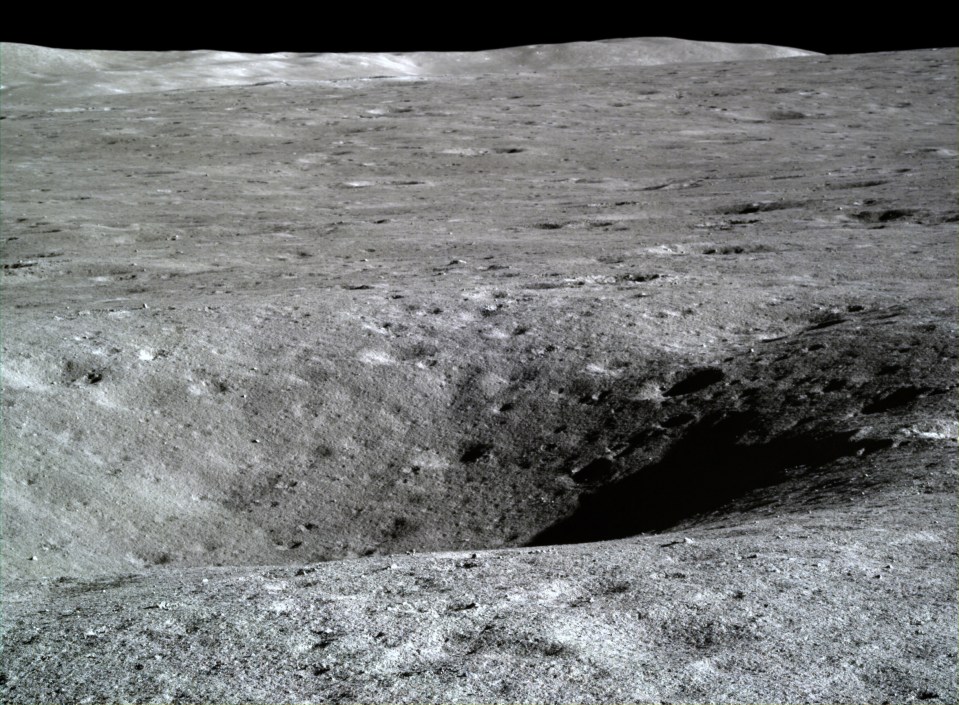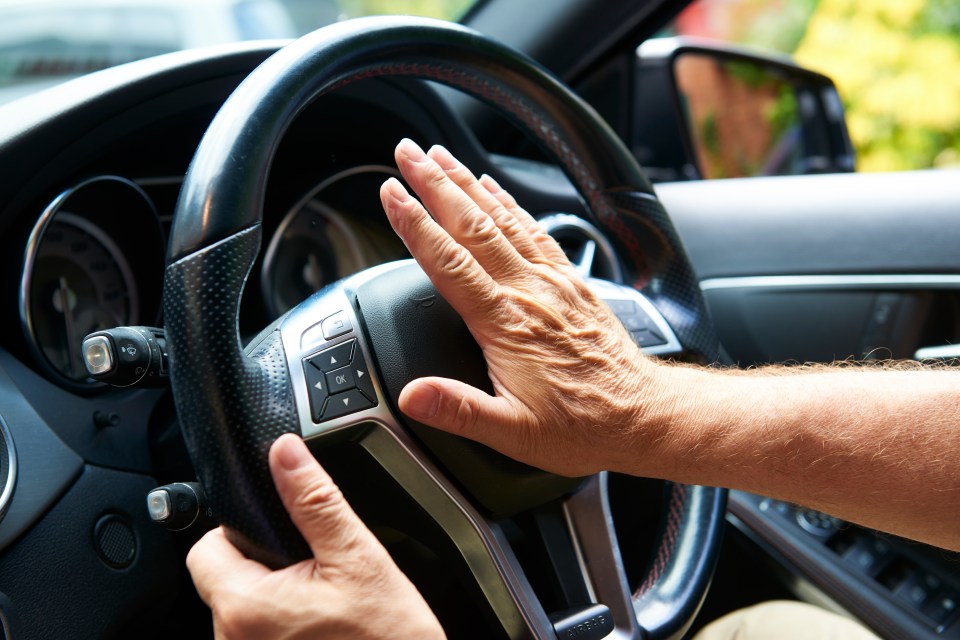What the location of your stomach ache means – plus when to seek help and the best treatments
No one is immune to the agony of stomachaches, which can range from painful bloating to gnawing cramping.
According to the NHS, the majority of stomachaches are not serious and will go away in a few days.
However, the pit of your stomach is home to many of your critical organs.
According to GP Claire Merrifield, this means that the position of the throbbing pain can occasionally reveal what is wrong or, more precisely, which organ is impacted.
Our abdominal pain sensors, which are located between the ribs and the pelvis, function somewhat differently than those on our skin, though.
“This means the location of pain in the stomach doesn t always tell us exactly what’s going on, although it can be useful,” she told Sun Health.
Read more on tummy aches
“As a general rule, widespread pain is less likely to be serious than pain you can point to with a finger.”
Here, Dr. Claire describes the most efficient method for dulling each type of stomach discomfort as well as what its position may indicate.
Upper central
According to Dr. Claire of Selph, any pain that originates directly beneath the rib cage may indicate acid reflux.
She clarified, “Pressing on that area might also cause pain.”
When the muscle that permits food to pass from the oesophagus to the stomach malfunctions, acid reflux occurs.
It may result in heartburn, which is a burning sensation in the chest.
Get rid of belly bloating with 5 exercises
According to the NHS, further signs of acid reflux include:
- An unpleasant sour taste in your mouth
- A cough or hiccups that keep coming back
- A hoarse voice
- Bad breath
- Bloating and feeling sick
Usually, overindulging in certain foods or eating too much of them causes it.
According to the NHS, heartburn can be brought on by coffee, tomatoes, chocolate, and fatty or spicy foods.
Sometimes avoiding these foods helps lessen the negative consequences of heartburn.
“You could try taking some antacid remedies like Gaviscon or Nexium to see if that helps,” the doctor advised.
These can alleviate symptoms within a few hours by neutralizing the stomach’s acid.
The best remedies include avoiding particular meals and using over-the-counter anti-acids.
When to get help: If your lifestyle changes or prescription medications aren’t working, or if you experience heartburn most of the time,
Upper right
The gallbladder, which is located just behind the rib cage, may be the source of an abrupt, acute pain in the upper right abdomen.
“Gallstones, where stones form inside the gallbladder, are probably the most common cause of pain here,” explained Claire.
According to the NHS, they typically don’t create any symptoms and don’t require treatment.
However, if a gallstone gets stuck in a gallbladder opening, it can cause an abrupt, severe stomach discomfort that typically lasts for five hours.
Every day habits harming your gut
Numerous variables can have a detrimental impact on gut health by changing how the gut functions or by eliminating the good bacteria, which makes room for the bad bacteria to proliferate. Here are a few typical ones:
A bad diet
Diets heavy in fat and sugar can cause an imbalance in intestinal flora. This usually refers to processed goods, such as fried dishes, cakes, biscuits, and more. In addition to alcohol, especially high-sugar cocktails and mixers, artificial sweeteners can also upset intestinal flora.
Absence of fiber
A diet lacking in dietary fiber can have a detrimental effect on gut health because it is necessary for the growth of beneficial gut bacteria. Wholemeal bread, oats, jacket potatoes, fruits, and vegetables are among the foods that contain fiber.
Antibiotics
Antibiotics are sometimes required, and we all need to take them occasionally. However, antibiotics have the potential to eradicate both helpful and dangerous gut flora, resulting in intestinal imbalances. Proton pump inhibitors and NSAIDs are two more drugs that may have an impact on gut health. When using antibiotics, be sure to adopt good gut health practices or take a probiotic.
Anxiety
We are all impacted by stress, but some people are more adept at handling it than others. A “leaky gut” can result from stress’s capacity to change the gut flora and increase gut permeability. Gas, discomfort, and diarrhea are among the symptoms.
“You can take simple painkillers like paracetamol or ibuprofen for pain relief,” Dr. Claire continued.
“It s a good idea to see your doctor about this pain if it s happening frequently or is severe.”
Cholecystitis, or gallbladder inflammation, is another consequence that some gallstone sufferers may experience.
Sepsis, a potentially fatal response to an infection, and other serious illnesses may result from this if treatment is not received.
According to the NHS, cholecystitis symptoms include:
- A high temperature
- Feeling sick
- Being sick
- Sweating
- Loss of appetite
- Yellowing of the skin and the whites of the eyes (jaundice)
- A bulge in the tummy
The best remedies are over-the-counter analgesics.
When to get help: If your everyday life is being impacted by chronic pain
Lower right back
Your kidneys may be malfunctioning if you have lower back pain that radiates.
“If you put your hands on your hips, your thumbs will point to your loins, which is where your kidneys live,” explained Claire.
Kidney infections or stones are the most frequent causes of pain here.
Kidney stones are quite common but extremely painful, and they can cause fever, chills, nausea, and vomiting, according to the NHS.
They can range in size from a golf ball to a grain of salt.
Foods to improve digestion
Constipation, heartburn, and IBS symptoms may be lessened by eating the correct meals.
- Eat more fibre to ease constipation – including wholemeal bread, brown rice, fruit and veg, beans and oats
- Drinks plenty of fluids to ease digestions – try having a glass of water with every meal and keep caffeine and fizzy drinks to a minimum
- Cut down on fatty foods such as chips, burgers and fried foods, as they are harder to digest and can cause stomach pain and heartburn – have lean meat and fish and grill rather than fry foods
- Ease up on spicy, garlicky and oniony foods if they’re causing heartburn, stomach pain or diarrhoea
- Beware of triggers gut symptoms, such as acidic foods, wheat and onions and lactose
- Take probiotics for a boost of “gut friendly bacteria” – they may take four weeks to work
Source: NHS
Usually, people can urinate on them without experiencing any discomfort.
If treatment is not received, larger kidney stones may result in infections or even renal failure.
Additionally, kidney infections can be quite harmful.
A kidney infection doesn’t cause major damage if it is treated with antibiotics right away.
On the other hand, it can cause sepsis, irreversible renal damage, and even death if treatment is not received.
“Either one of these needs medical attention so feel free to take painkillers but don t delay in speaking to a doctor if you have pain here that doesn t go away,” says Claire.
The best remedies are over-the-counter analgesics.
When to get help: If the discomfort doesn’t go away
Lower right stomach
Appendicitis may occasionally be indicated by a chronic ache in the bottom right section of your stomach.
This occurs when there is inflammation in the appendix, an organ that is attached to the large intestine.
“Withappendicitis, people will tend to feel generally unwell with a dull pain around the belly button initially, which will then move down to the right lower abdomen,” explained Dr. Claire.
“Pain in this area of the abdomen, particularly if it is constant or painful to press on, could well be appendicitis.”
You may lose your appetite, feel sick, and have constipation ordiarrhoea, the NHS says.
Dr Claire added that if you re experiencing “significant pain” in this area that s not settling down, it s best to go to an A&E to get checked out.
The appendix may rupture and result in potentially fatal infections if appendicitis is left untreated.
The best remedies include surgery to remove the appendix.
When to seek help: If pain is constant or significant
Lower central
The lower central part of the abdomen is where our bladder lives and for women, the womb.
Pain emerging from this general area could be a sign of a urinary tract infection (UTI).
“If you have a UTI, you will also likely have a burning sensation when you wee and it might smell unpleasant,” the medic says.
She said mild UTIs can sometimes clear up on their own if the sufferer drinks lots of water to flush out the infection.
But in many cases, antibiotics are needed to avoid more serious conditions, especially in men.
The NHS says other symptoms of a UTI may include:
- Pain or a burning sensation when peeing (dysuria)
- Needing to pee more often than usual
- Needing to pee more often than usual during the night (nocturia)
- Needing to pee suddenly or more urgently than usual
- Pee that looks cloudy
- Blood in your pee
- Lower tummy pain or pain in your back, just under the ribs
- A high temperature, or feeling hot and shivery
- A very low temperature below 36C
Best treatments:Water and antibiotics
When to seek help: If your symptoms get worse or do not improve within two days
Central
Pain coming from the middle of your tummy is probably to do with your bowel.
“It might be trapped wind, bloating, orirritable bowel syndrome(IBS) pain or discomfort,” Claire says.
“Usually changing position, making sure your waistband is not too tight and gentle stomach massage will soothe discomfort in this area.”
IBS is a common condition that affects the digestive system.
It causes symptoms like stomach cramps, bloating, diarrhoea and constipation, the NHS says.
It can be debilitating and requires a lifelong commitment to routine habits, which can include avoiding foods that trigger your symptoms and eating food high in fibre.
If you think you could have IBS, the NHS recommends you visit your GP.
They can check for IBS and do some tests to rule out other problems.
Read More on The US Sun
Best treatments:Avoiding trigger foods
When to seek help: If your symptoms are persistent
Note: Every piece of content is rigorously reviewed by our team of experienced writers and editors to ensure its accuracy. Our writers use credible sources and adhere to strict fact-checking protocols to verify all claims and data before publication. If an error is identified, we promptly correct it and strive for transparency in all updates, feel free to reach out to us via email. We appreciate your trust and support!














